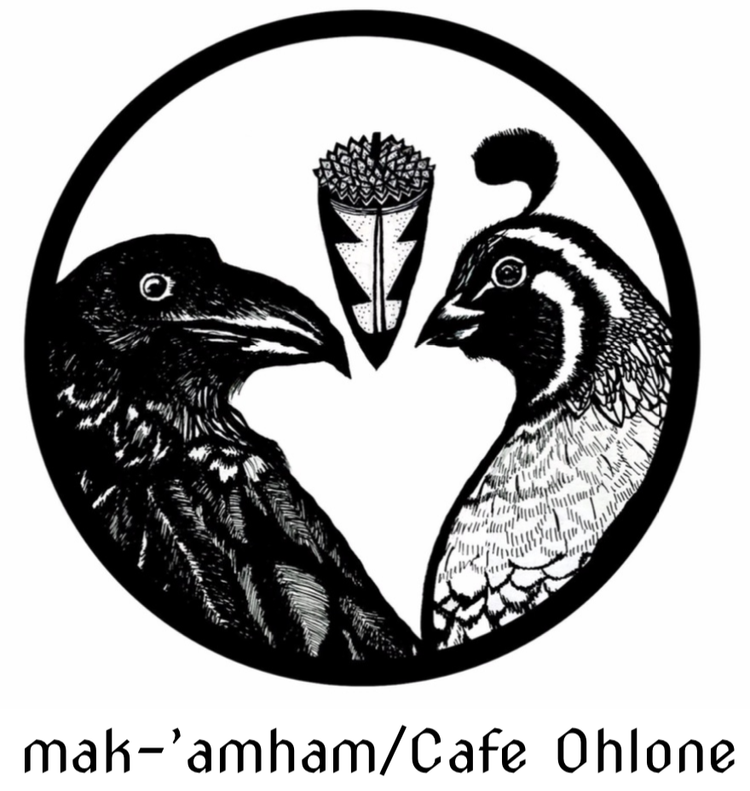Ohlone Land
With the establishment of mak-warép Ohlone Land Conservancy, we are working toward a vision of reacquisition and restoration of land, leading this important work through our many partnerships by reinstituting traditional land management practices and demonstrating with data the efficacy of cultural burns, traditional digging, aeration of soil, and seasonal coppicing of plants. We know that restoration can actively take hold on land that has endured the abuse of cattle grazing, contamination, development, and the spread of non-native species of plants by reintroducing an abundance of interconnected native plant communities specific to Bay Area microclimates, studying soil health, and strengthening cultural relationships to restored landscapes. Where we have already conducted this important work in various locations, we have observed first-hand the positive effects of the reintroduction of pollinators, soil health improvement, and restoration of native vegetation; for our Ohlone community, this has led and will lead to greater access to indigenous basketry, food, and medicinal plants.
“Ohlone Land” was formally inaugurated with the California Academy of Science’s implementation of a fundraising campaign on our behalf in 2023. We will use funds generated from our effort, as well as from partnering foundations, to purchase East Bay land on which to create a thriving culinary and educational center, gardens, and demonstration spaces based our place-based, time-tested, hyper-localized land management practices; these practices have been proven to be integral to the restoration and sustained health of the land here in the San Francisco Bay Area.
A series of native gardens located on East Bay land, once it has been restored, Ohlone Land will have three interconnected restaurant spaces:
A sun-lit tearoom made primarily of glass and surrounded by an abundance of fragrant native plants will serve gathered teas freshly harvested from the surrounding landscape, along with small bites that are shared in a building that spills out onto sprawling gardens, allowing one to literally have tea among the flowers, fostering respect for the very plants themselves.
A wooden speakeasy-esque lounge in a wooden slat-house casita, inspired by the houses built on the Sunol Rancheria in the late-1800s, will be filled with Ohlone baskets, fine silk tapestries, and traditional beads gently draped from the casita’s wooden rafters in the glowing light of kerosene lamps, all familiar to our family and representative of the rancheria era during which our great-grandparents were born.
The marquee dining space will be inside a grand, thatched tule houserepresenting the beauty of traditional Ohlone architecture, where dappled light will gently flow through the scented reeds and a central fire will be lit when the evenings get chilly, illuminating the fine courses of Ohlone cuisine gracefully plated on redwood tables. Native plants will be gathered sustainably immediately before each dinner in this grand tule house, leading to an unparalleled Ohlone land-to-table dining experience.
Interconnected trails will link these three unique gastronomic experiences through a series of remediated gardens of Ohlone Land that will be full of native plants such as artemisia, poppies, mugwort, ceanothus, hummingbird sage, coyote mint, yerba buena, and Indian strawberries — representing the landscape as it was prior to colonization: full, yet managed. This dreamy land will be fragrant; adorned with abalone and clamshell pendants dripping from illuminated trees, it will share the native sounds of the landscape and voices of Chochenyo from hidden speakers. It will represent the dignity of the traditional world we descend from. Our Ohlone Land project is an ambitious and hopeful vision interconnected with the ongoing work of mak-’amham and Cafe Ohlone that has led to tangible change and a greater understanding of Ohlone identity and culture specific here to the San Francisco Bay Area.
Acreage behind these public offerings will be reserved as community space for Ohlone people to be together to harvest traditional plants, to implement cultural burns, to cultivate basketry materials, and to celebrate our culture in a private, safe manner that we have not had access to since the 1927 disenfranchisement of our land on the Sunol Rancheria by the federal government after the University of California, Berkeley erroneously declared us extinct.
Collectively, our work provides representation for our Ohlone community, the indigenous people of the San Francisco Bay Area, while simultaneously educating the public about the value of our living culture and specific land-based practices that come from it. Since our inception in September of 2017, Cafe Ohlone has consistently demonstrated to the public that place-specific, localized land management practices led by Ohlone people can help alleviate the climate crisis we are experiencing while fostering greater respect for Ohlone people and our vibrant cultural traditions.
Our work is an act of love, coming from a place of hope instilled in us by our elders, and connected to a deep Ohlone concept called ‘oṭṭoy, which means “to repair” in the Chochenyo language; we know we do not have to accept the conditions and unjust challenges imposed on us, but that we can be active forces to see healing, restoration, and positive change take hold in our beautiful homeland and the world around us.
Join us as we embark on this beautiful, grand journey that will be Ohlone Land.
Concept Art by Hannah Pae (@hannahpae)

